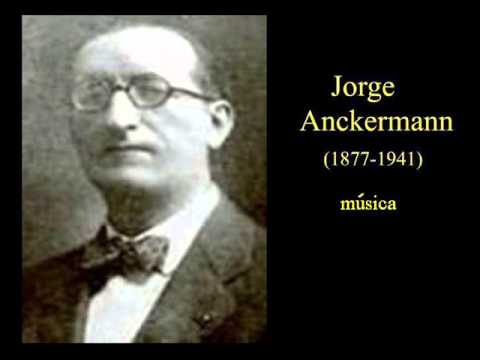Hello again, NYFOS Song of the Weekers! The last time I took over this blog for a week, parsimony was not an aspiration that guided my writing. This time I will keep it brief, and I promise to try to avoid words like “parsimony.”
I will ask you to indulge me in taking a moment to congratulate the whole NYFOS family, but especially Steven and Michael for making it 30 years. I’m sure most of you reading this post are more than familiar with the genius at work throughout the decades of NYFOS programs and performances, so I won’t tell you what you already know. But I will add that my work with NYFOS was one of the most significant experiences in forming who I am as an artist, singer, and recitalist. Long may NYFOS provide the sustenance for lovers of song of all stripes that it provides us year in and year out.
I will be performing today’s song of the day, “Flor de Yumurí,” on our NYFOS 30th Anniversary concert tomorrow (Tuesday) night! I sang this song with Steve only once before, so I was a little surprised when he suggested this song for the big anniversary concert. I loved it and loved singing it that one time we performed it, so I am thrilled that we are bringing it back, and I have discovered a much deeper meaning in the song this time around. At first listen, it is a typical “come be my baby” love song. Its laid-back, definitely-not-trying-too-hard Cuban groove struck me—as we kids used to say back then—super chill. Since those *cough*cough* years ago, I have gotten married and had a kid, and when I came back to the song this time around, I found something much more profound than a simple seduction.
Here is Steve’s translation of the song:
Beautiful flower of Yucayo
At birth Yumurí took my image
into its crystal surface
That river is
where I long to see my face
reflected always.
Come, O my love, to the shore
of this golden river
With your arrow and your caney.
Come you’ll see how the river
with its waters weeps
The lament of the Siboney.
Come, for the flower of your Yumurí
ardently awaits you.
Thanks to Steve’s scholarship (and the assistance of his Spanish teacher, Dorothy Snyder), I learned four crucial details about these lyrics: 1. The Yumurí is the most beautiful valley in Cuba through which flows the Yumurí river. According to pre-Hispanic, indigenous legend, Yumurí and his beloved from a rival tribe, Albahoa (think Cuban Romeo and Juliette) eloped and, fleeing their families, drowned in the river that became known thereafter as the Yumurí. 2. Yucayo is the aboriginal name for what is now Matanzas, the seaside city in western Cuba. 3. The Siboney refers to the Taino indigenous people of western Cuba. 4. A caney is a little hut.
These folkloric details changed my entire understanding of this song. I had sensed something essentially Cuban about it and assumed it had to do with the music’s rhythm and the poetry’s attitude. Those, of course, still pertain. But these legendary aboriginal references locate the poem not in modern Cuba, but in a distant past and among an ancient people. I know virtually nothing about Cuba’s history or politics, so this one time I won’t speculate about such things in my typical, amateur way. But I will share my instinctive understanding about this song that these details have evoked for me: the ancient, mythical lovers—like the Siboney people themselves—were doomed, but their ultimate destruction is what gives meaning and beauty to their story. All of us are destined for death, but our lives have meaning because we love and make a life and home for ourselves despite that knowledge. We see ourselves as a part of the land and the natural world from which we spring. We are all the flower of an ancient people, and we will all return to the beautiful river that gave us life. This is a fairly universal nugget of wisdom, perhaps, but it’s the local details that give these pepitas de sabiduría the specificity and spice to bring them to vivid life.
And this is why I am so happy to be performing this song on NYFOS’s 30th anniversary concert. Songs like “Flor de Yumurí” speak to deep, ineffable aspects of human life, and the best way to speak to the universal and immutable aspects of humanity is through the most local and specific means. In other words, NYFOS concerts communicate the meaning of life…so come to the concert tomorrow!



Dear Paul,
It is a privilege to collaborate with you and Steve on your understanding of the lyric this classic song from the cancionero Cubano, and I congratulate you on choosing just the right recording of it. Matanzas is, of course, the cradle of much of the greatest music of Cuba (think Trio Matancero), and though Ackermann was pure Habanero, he draws upon the tradition of the Venice of Cuba, just slightly to the East and accessible by train. How I would love to hear you sing it tomorrow at the Anniversary Celebration!
Have a wonderful time at this brilliant NYFOS birthday party.
Saludos,
Dorothy Potter Snyder
What a pleasant surprise to find this blog posting as I was searching for the lyrics of the melody that is Flor de Yumuri. When my father arrived from Cuba he had many worries on his mind and mostly economic. The fact that in those early years he collected recordings of Cuban music, and many others like Argentine tangos, speaks volume to his love of music. Growing up in the quiet suburbs of Miami his records were the soundtrack to which I played with my Fischer Price and Lincoln Logs. Thank you for elaborating so simply and elegantly on the story behind this piece. I never had the idea that Cuban culture was just maracas, rumberos and Tropicana. Music like this does carry the echo of its history and perhaps that is why it seeped into my soul at an early age and why it reverberates still as I write this from the Netherlands 50 years later – no Fischer Price just the music please.